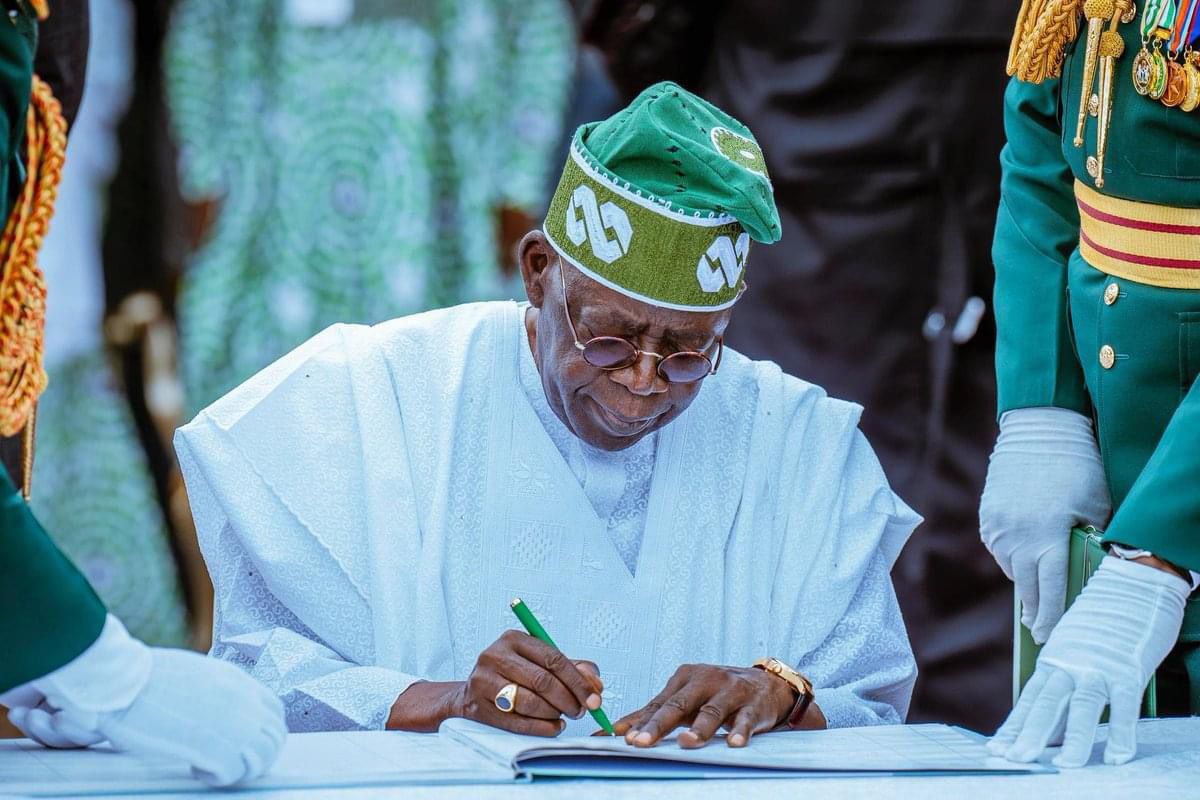NIGERIA: Tinubu Seeks National Assembly Approval For $2.2 Billion 2024 Budget Deficit Loan

By Onoja Baba, Nigeria
Nigerian President Bola Ahmed Tinubu, has requested the National Assembly’s approval for a fresh $2.2 billion external loan to address the N9.7 trillion budget deficit in the 2024 Appropriation Act.
The appeal, contained in a letter read by the Speaker of the House of Representatives, Tajudeen Abbas, during Tuesday’s plenary, highlights the government’s reliance on external financing to stabilise the economy.
The proposed borrowing plan includes a $1.7 billion Eurobond and $500 million Sukuk financing to cover part of the deficit.
According to Tinubu’s letter, the request aligns with the Debt Management Office (DMO) Establishment Act of 2003 and has already received Federal Executive Council (FEC) approval.
“In accordance with the provisions of Sections 21 and 27 Subsection 1 of the DMO Act, and following FEC approval, I hereby request a resolution of the National Assembly to raise the sum of $2.2 billion as part of the external borrowing enshrined in the 2024 Appropriation Act,” Tinubu wrote.
Additionally, the President submitted the 2025-2027 Medium-Term Expenditure Framework (MTEF) and Fiscal Strategy Paper (FSP) for legislative consideration.
Tinubu emphasised the importance of expediting the approval process, noting that the framework is critical for preparing the 2025 budget.
“The Senate is invited to note that the 2025 budget of the Federal Government of Nigeria will be based on the parameters and fiscal assumptions of the approved 2025-2027 MTEF and FSP. I trust that the House of Representatives will consider the passage of this submission expeditiously,” Tinubu wrote.
In a related move, Tinubu also forwarded the National Social Investment Programme Establishment Amendment Bill, proposing to make the national social register the primary tool for implementing the Federal Government’s social welfare programs.
This loan request follows the FEC’s approval of the $2.2 billion external borrowing plan last Thursday. The government’s reliance on external loans to finance deficits has drawn scrutiny, with concerns over Nigeria’s rising debt burden. However, officials argue that the funds are necessary to bridge funding gaps and sustain development projects.
categories
recent posts



NIGERIA: Lagos To Introduce Special Number Plates For Persons With Disabilities

NIGERIA: Afrobeats Star Spyro Dedicates New House

